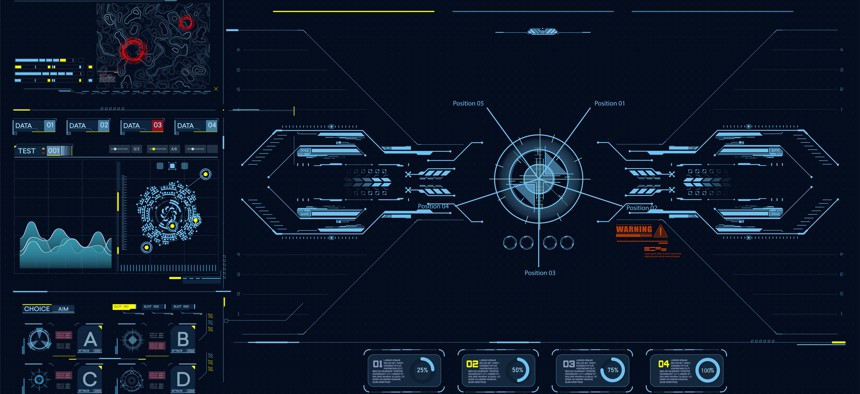Air Force research arm plans AI prototypes contract for command and control efforts

Natalya Burova/Getty Images
The $99 million broad agency agreement aims to develop artificial intelligence applications that could help optimize all-domain operations.
The Air Force Research Laboratory is prepping for a new contract to test and prototype artificial intelligence applications that could ultimately strengthen its Joint All Domain Command and Control operations.
In an Aug. 31 presolicitation notice, the Air Force’s research and development arm detailed a planned broad agency announcement to develop C2 AI applications that can operate in a distributed and contested environment.
“Key to the [Air Force] transitioning from a single monolithic C2 node to multiple distributed C2 nodes is the ability [to] orchestrate operational processes, while optimizing for limited resources,” the notice said. “Through the development of distributed C2 capabilities the [Air Force] can achieve an agile, fully mobile, distributed and virtualized C2 operational capability.”
Leveraging technology to advance command and control has become a core tenet of the Air Force as it works on its Combined Joint All-Domain Command and Control — or CJADC2 — effort to develop a real-time data network that can track activity across the air, land, sea, space and cyberspace between the U.S. and its allies.
Ensuring data capabilities can exist in distributed and enemy-contested environments is seen as a crucial aspect of the CJADC2 effort. The contract touches on eight technical areas:
- Command and control of AI systems to achieve mission tailored AI
- Developing federated, composable autonomy adnd AI Toolbox
- Advanced wargaming and simulation agents
- Interactive learning for solving command, control, communications, computers and intelligence — or C4I — problems
- C2 complexity dominance
- Using generative AI for C4I
- Software defined distributed C2
- Tactical AI
The anticipated five-year contract would include multiple awards touching on options that range from traditional procurement contracts to Defense Department-based grants, Other Transaction Authorities and cooperative agreements.
Awards are expected to have a period of performance of up to 48 months and may range between $200,000 to $20 million, but could be up to any dollar amount not exceeding the ceiling of the contract.
AFRL is currently accepting initial white paper submissions detailing possible capabilities between now and Aug. 30, 2028. More details on deadlines are available in the solicitation.
Formal proposals will be by invitation only, following white paper selections, and will lead to a potential contract award.






